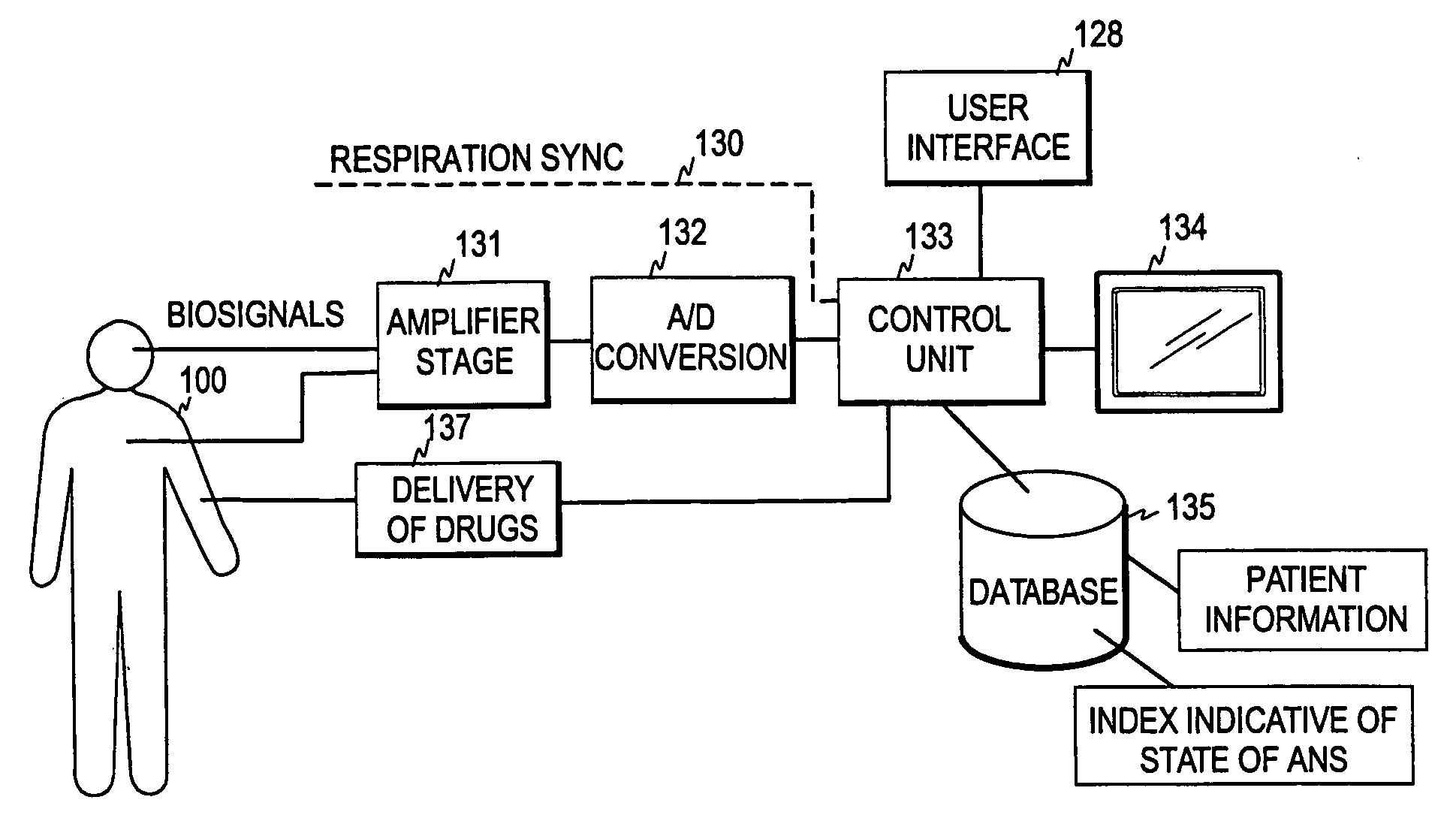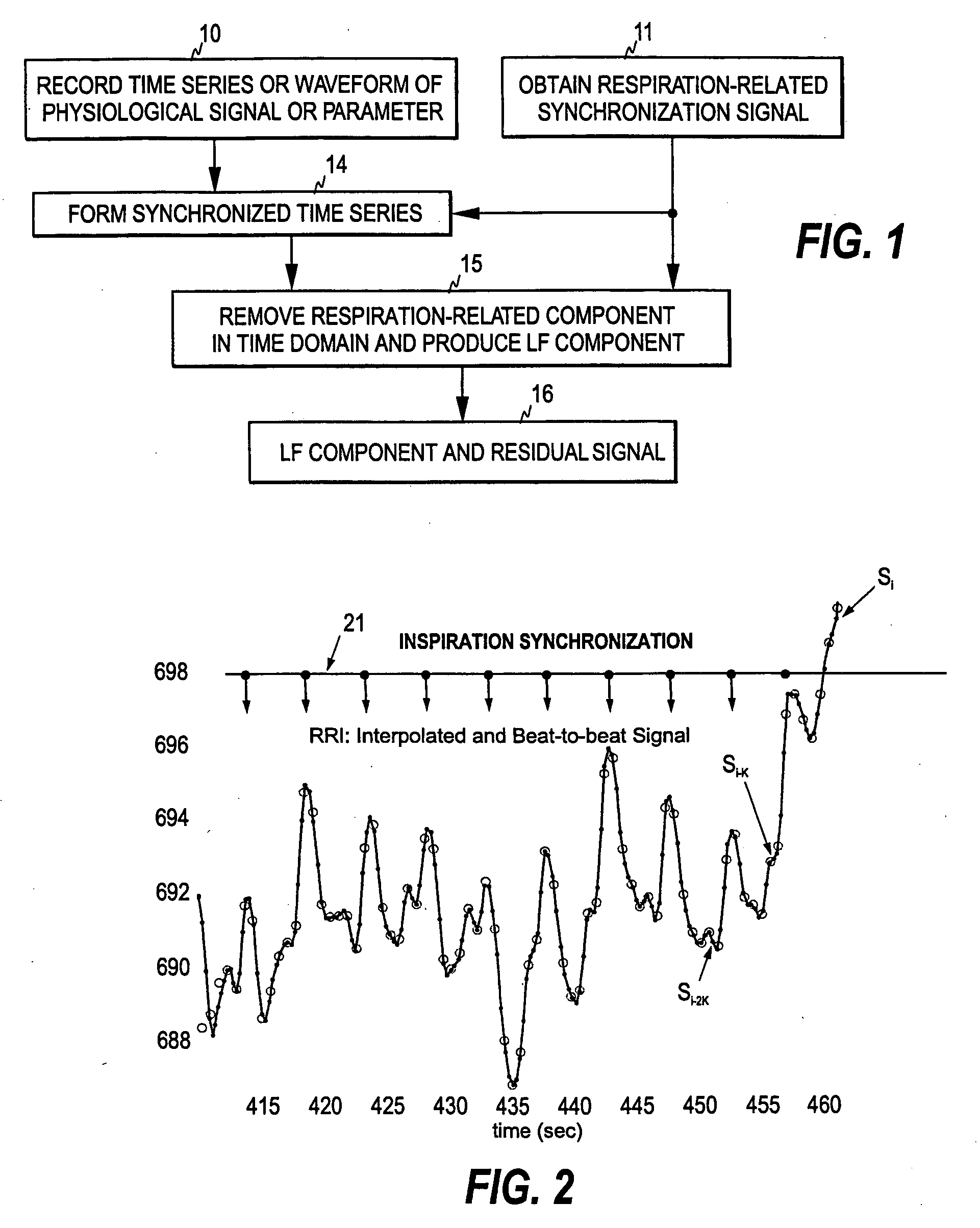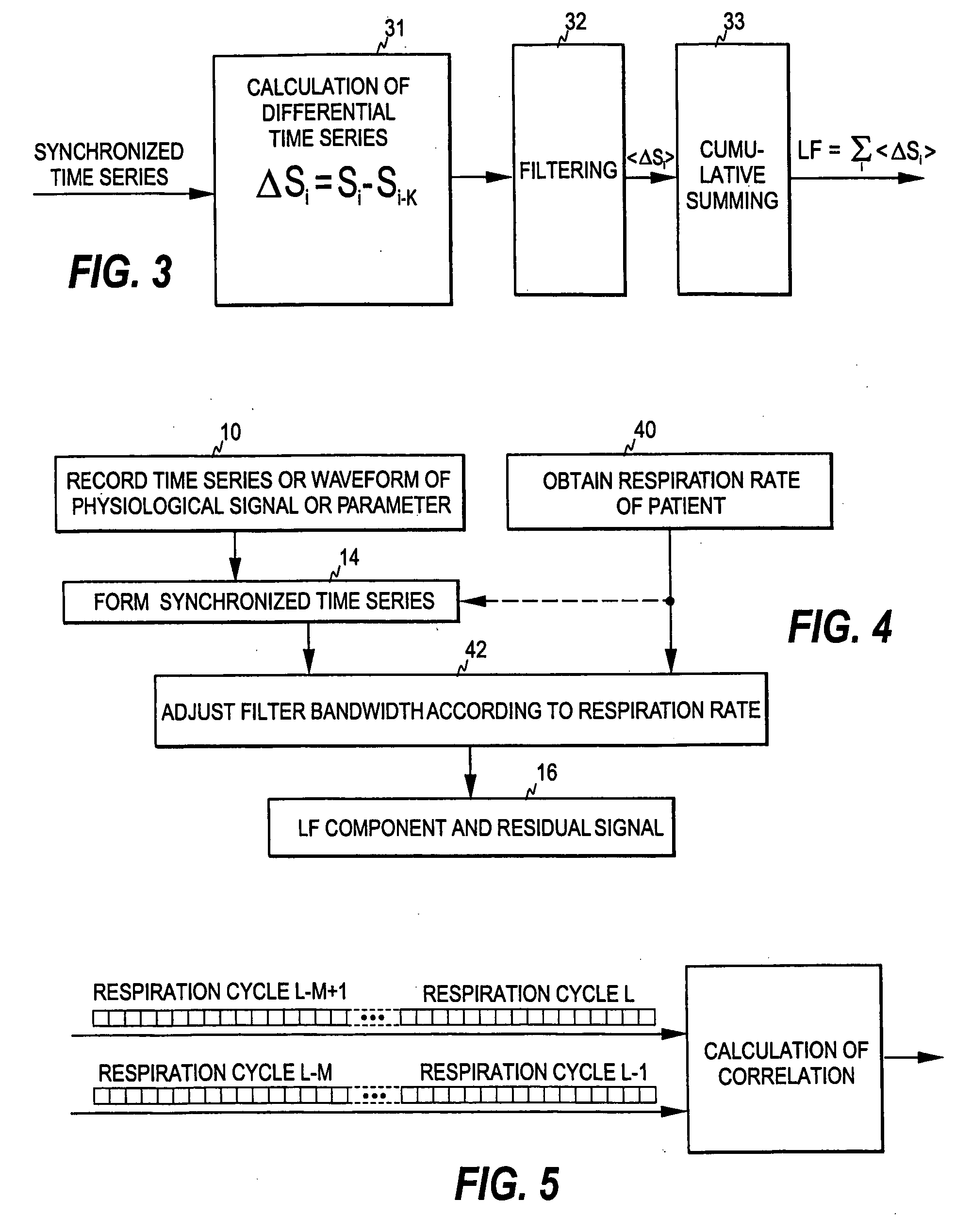Real-time monitoring of the state of the autonomous nervous system of a patient
a technology of autonomous nervous system and real-time monitoring, which is applied in the field of real-time monitoring of the state or activity of the autonomous nervous system (ans) of a patient, can solve the problem of more disturbance of the operation of the ans, and achieve the effect of reliable results
- Summary
- Abstract
- Description
- Claims
- Application Information
AI Technical Summary
Benefits of technology
Problems solved by technology
Method used
Image
Examples
Embodiment Construction
[0031]FIG. 1 illustrates one embodiment of the present invention. For the actual measurement, signal data is first obtained from the patient. This may be implemented in a conventional manner, i.e. while the patient is connected to a patient monitoring system a physiological signal is recorded and stored in a memory of a monitoring device. The physiological signal may be, for example, an ECG waveform or a photoplethysmographic signal, a blood pressure signal or a signal representing a physiological trend parameter, such as heart rate, pulse rate, or blood pressure. However, as discussed below, the physiological signal is such that the respiration of the patient causes modulation to the signal.
[0032] The recorded signal data may then be pre-processed for extracting the parameters that are not directly available as a trend parameter, such as beat-to-beat or cycle-to-cycle intervals of the waveform. For example, to obtain an RRI signal the moments at which the R-peaks occur in the QRS-...
PUM
 Login to View More
Login to View More Abstract
Description
Claims
Application Information
 Login to View More
Login to View More - R&D
- Intellectual Property
- Life Sciences
- Materials
- Tech Scout
- Unparalleled Data Quality
- Higher Quality Content
- 60% Fewer Hallucinations
Browse by: Latest US Patents, China's latest patents, Technical Efficacy Thesaurus, Application Domain, Technology Topic, Popular Technical Reports.
© 2025 PatSnap. All rights reserved.Legal|Privacy policy|Modern Slavery Act Transparency Statement|Sitemap|About US| Contact US: help@patsnap.com



